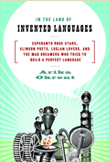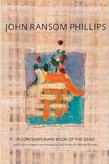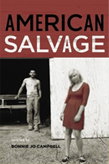On the Shelf
The Magazine publishes a selection of general-interest books by alumni authors. For additional alumni books, see “In Their Own Words” at magazine.uchicago.edu/books.
 In the Land of Invented Languages: Esperanto Rock Stars, Klingon Poets, Loglan Lovers, and the Mad Dreamers Who Tried To Build a Perfect Language, by Arika Okrent, PhD’04, Spiegel & Grau, 2009. Esperanto, Volapük, Dritok, Blissymbolics: all were invented in hopes of finding linguistic perfection. What’s more perfect, for example, than the word lxmsgevjltshevjlpshev—from James Ruggles’s 1829 universal language—which means “179 degrees 59 minutes and 59 seconds of west longitude within one second of reaching 180 degrees west”? Drawing from some 900 documented artificial languages, Okrent writes a history of some of the characters behind the grammar.
In the Land of Invented Languages: Esperanto Rock Stars, Klingon Poets, Loglan Lovers, and the Mad Dreamers Who Tried To Build a Perfect Language, by Arika Okrent, PhD’04, Spiegel & Grau, 2009. Esperanto, Volapük, Dritok, Blissymbolics: all were invented in hopes of finding linguistic perfection. What’s more perfect, for example, than the word lxmsgevjltshevjlpshev—from James Ruggles’s 1829 universal language—which means “179 degrees 59 minutes and 59 seconds of west longitude within one second of reaching 180 degrees west”? Drawing from some 900 documented artificial languages, Okrent writes a history of some of the characters behind the grammar.
The Will of the People: How Public Opinion Has Influenced the Supreme Court and Shaped the Meaning of the Constitution, by Barry Friedman, AB’78, Farrar, Straus and Giroux, 2009. The role of Supreme Court justices has been controversial since the Constitution was written. Critics argue that the justices have power without accountability; unelected, they hold their positions for life. Friedman counters that the American public has influenced judicial decisions. For at least the past 60 years, he says, Supreme Court verdicts on controversial topics such as abortion and gay and lesbian equality have echoed public opinion.
Yiddish Yoga: Ruthie’s Adventures in Love, Loss, and the Lotus Position, by Lisa Grunberger, AM’90, PhD’97, Newmarket Press, 2009. When her granddaughter gives her a year’s worth of yoga classes, the newly widowed Ruthie decides to try “this meshuga class.” Grunberger’s tale of a New York City bubby coming to terms with her husband’s death also explores the connections between Jewish faith and yoga practice.
 A Contemporary Book of the Dead, by John Ransom Phillips, AB’60, PhD’66, Clarissa Editions, 2009. This coffee-table book featuring Phillips’s paintings on papyrus echoes the ancient Egyptian Book of the Dead, a collection of spells and incantations with instructions on how to navigate the afterlife. With essays by Egypt’s Secretary General of the Supreme Council of Antiquities Zahi Hawass and Divinity School professor Wendy Doniger, Phillips’s book reflects on current views of death and what comes afterward.
A Contemporary Book of the Dead, by John Ransom Phillips, AB’60, PhD’66, Clarissa Editions, 2009. This coffee-table book featuring Phillips’s paintings on papyrus echoes the ancient Egyptian Book of the Dead, a collection of spells and incantations with instructions on how to navigate the afterlife. With essays by Egypt’s Secretary General of the Supreme Council of Antiquities Zahi Hawass and Divinity School professor Wendy Doniger, Phillips’s book reflects on current views of death and what comes afterward.
When You Were a Tadpole and I Was a Fish: And Other Speculations About This and That, by Martin Gardner, AB’36, Hill and Wang, 2009. Gardner, a nonagenarian and former writer of Scientific American’s Mathematical Games column, collects his essays on Fibonacci sequences, The Wizard of Oz, the sinking of the Titanic, religious fundamentalism, and those debunking what he calls “fads and fallacies in the name of science.”
Channels of Power: The UN Security Council and U.S. Statecraft in Iraq, by Alexander Thompson, AM’97, PhD’01, Cornell University Press, 2009. Before invading Iraq in the early 1990s, the elder George Bush sought UN Security Council approval. His son’s administration later bypassed the approval process. In this survey of U.S. policy toward Iraq over the past two decades, Thompson examines the value of multilateral support, discussing why powerful states often act through international organizations and why they sometimes act alone.
 American Salvage, by Bonnie Jo Campbell, AB’84, Wayne State University Press, 2009. Meth addiction, violence, and a dying Rust Belt economy mark the characters that populate Campbell’s short-story collection, a finalist for the 2009 National Book Award. Living in rural Michigan, the working-class and working-poor protagonists learn to survive in miserable and tragic circumstances.
American Salvage, by Bonnie Jo Campbell, AB’84, Wayne State University Press, 2009. Meth addiction, violence, and a dying Rust Belt economy mark the characters that populate Campbell’s short-story collection, a finalist for the 2009 National Book Award. Living in rural Michigan, the working-class and working-poor protagonists learn to survive in miserable and tragic circumstances.
Why cant U teach me 2 read? by Beth Fertig, AM’91, Farrar, Straus and Giroux, 2009. In this book by NPR senior reporter Fertig, three young adults with learning disabilities challenge New York City’s public-school system in court and win settlements because they made it to high school without learning to read. Alongside the tragedy of the students’ stories—how illiteracy hinders Antonio’s ability to join the military, for example—Fertig also comments on the state of education in the No Child Left Behind era.
